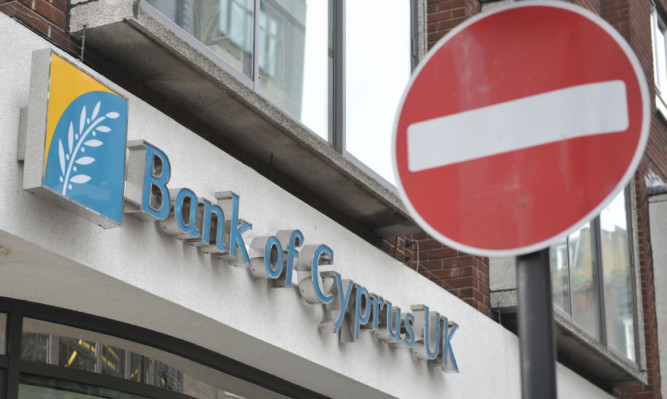Parliament in Cyprus has approved a “national solidarity fund” to ease the banking crisis, which has hit confidence across the eurozone.
MPs also imposed capital controls but are still to decide whether to impose a levy on large bank deposits.
The solidarity fund was one proposed way of raising the 5.8 billion euros (£4.9 billion) Cyprus needs to qualify for an international 10 billion euro bailout.
Parliament on Tuesday rejected a levy on all deposits to raise the money. The fund would allow the pooling of state assets for an emergency bond issue, it was reported.
Any plan agreed by the Cypriot parliament needs approval from the eurozone and International Monetary Fund.
Earlier, government spokesman Christos Stylianides said: “The next few hours will determine the future of this country,”
Cyprus has had to come up with the new plan after lawmakers rejected a scheme that would have seized up to 10% of people’s bank deposits.
The country needs to have the plan in place by Monday, when the European Central Bank has said it will cut off emergency support to the banks.
That could trigger their collapse and devastate the economy, potentially pushing the country to leave the 17-country euro currency union.
“We are trying very hard,” Averof Neophytou, deputy leader of the ruling Democratic Rally party, told reporters earlier on the progress of talks.
As part of the package being discussed yesterday, lawmakers were considering restructuring the country’s second largest lender, Laiki, which suffered big losses on Greek debt investments.
A large part of deposits in Laiki above the 100,000 euros (£850,000) that are insured could be confiscated.
Banking officials estimate the restructuring will account for 3.6 billion euros (£3 billion) of the 5.8 billion euros the country needs to raise.
Laiki bank’s acting CEO, Takis Phidias, condemned the plan, saying: “I’m certain that there will be chaos after these bills are approved.”
Mr Phidias said the initial plan to seize deposits across all Cypriot accounts “would have more evenly shared the burden and certainly, it would have safeguarded both large banks”.
A government official indicated that a tax on deposits in other banks was also still on the table.
The Bank of Cyprus, the country’s largest lender, said it backed the idea of confiscating some percentage of all bank deposits over 100,000 euros because there were no immediate alternatives.
Meanwhile, Cypriot efforts to clinch a contribution from Russia appeared to have failed for now.
Russia is a key player in the crisis as Russian depositors have parked around 20 billion euros (£17 billion) in the country.
